Tattoos are on the rise, and with almost half of Millennial’s sporting tattoos – and most inked Millennial’s having two or more tattoos – it’s a hard trend to miss.
But along with the rise in ink, we’re also seeing a lot of discussion of tattoos reaching the peak of their popularity. In Everything from online discussion boards to major magazines, you can find people speculating that the growth in tattoos is simply a fad and like all other fads, it is on the cusp of crashing.
The people sounding the alarm for the peak of tattoos being reached usually point to two pieces of information to support their view as to why tattoos are on the decline: the number of people who regret their tattoos, and the employment prospects of tattooed job applicants.
However, if you ask me, this talk about peak tattoo is overblown. I’ll go over those two major arguments one by one to show you why I’m not convinced by them, and why I think tattoos aren’t likely to peak any time soon.
Will Tattoos Harm Your Job Prospects?
Every once in a while, there’s a small study showing that employers and hiring managers are less likely to take a candidate with prominently displayed tattoos seriously, but it’s important to dig into the data and look at what it really shows.
First, there are studies that canvas Millennial’s about their tattoo decisions. As it turns out, a very significant portion of tattooed Millennial’s get their tattoos in locations that are easy to hide with clothing, for fear that a conspicuous tattoo will be frowned upon by employers. That’s interesting information, but it doesn’t actually tell us anything about how tattoos affect their job prospects, only that Millennial’s are a rather cautious bunch.
There are also the occasional studies that show that hiring managers frown upon tattoos – but what we discover when we look more closely is that this just points to a generational difference. People over 35 are more likely to take a negative view of tattoos, and people over 35 are also more likely to be in corporate positions where they can influence hiring decisions. But as more Millennial’s get older and move up the ranks at these companies, they will take on more of these duties, which means hiring decisions will be made by people who are more likely to have a positive attitude toward tattoos.
There is also data supporting the contrary position. Michael French, a professor at the University of Miami Business School, surveyed 2,000 people to learn one simple thing: are tattooed respondents less likely to be employed than those who are ink-free? The results are promising: tattooed and tattoo-free respondents were equally likely to be employed – and in fact, tattooed men in the study were slightly more likely to be employed.
The other concern is dress codes. Companies can ask their customer-facing employees to cover their tattoos and are legally permitted to fire employees who don’t meet this demand; but even here, we’re seeing a change coming. Major companies are not only getting rid of their no-tattoo policies, but are actually instituting new policies that explicitly permit visible tattoos, and as Millennial’s become a more dominant force in the workplace and the economy, this trend is likely to accelerate.
Will You Regret Your Tattoos?
Tattoo regret is real. I’m not going to pretend that everyone who gets a tattoo stays in love with their ink forever, but just like the employment prospects argument, this is also a worry that strikes me as overblown. Depending on where you pull the numbers, between one fifth and one quarter of Americans regret at least one of their tattoos.
Those are high numbers, and no one wants to fall into the wrong end of that statistic. So, with so much regret in the air, are tattoos going to lose their appeal?
I doubt it.
To see why, let’s consider why people regret their tattoos. One survey found that women’s biggest reasons for regretting their tattoos are getting bored of the design or the ink having faded over time. Men, on the other hand, were most likely to regret theirs because of “diminished sentimental value” or growing bored of it. When it comes to faded tattoos, it’s easy to get those fixed. Instead of lasering them off, the same funds can go to re-coloring them.
As for growing bored or losing its sentimental value, there’s a little fudging going on here. When we talk about regrets, it makes it sound like we’re talking about tattoos we wish we never got, or wish we could get rid of, but that’s not exactly what these stats show. As one tattoo artist put it, there’s a big difference between no longer relating to your tattoo, and regretting it.
A tattoo you’re bored of or don’t feel strongly connected to anymore can still be cherished as a representation of who we were when we got the tattoo and how much we’ve changed since then – and that’s hardly a reason to hold back on getting inked.
Tattoos Aren’t Peaking Yet
The data on tattoo popularity all points in one direction: upward.
Millennial’s have more tattoos than any generation before them, and the tattoo industry is growing steadily.
Every trend eventually reaches its saturation point. Sooner or later, tattoo popularity will either plateau or start to go down. However, for the time being, all we can tell for sure is that it’s growing.
With tattooing on the rise and no credible reason to think that it will wane in the near future, it’s far too soon to proclaim the tattoo peak has already reached the summit.



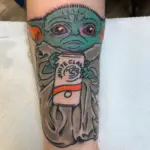







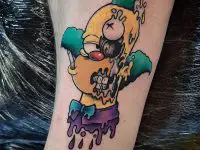
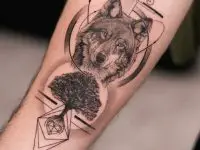
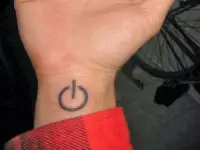








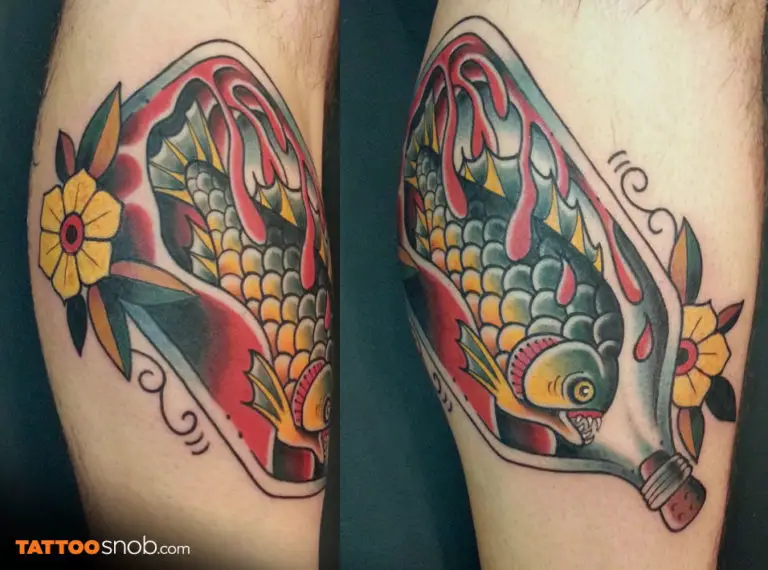
0 Comments